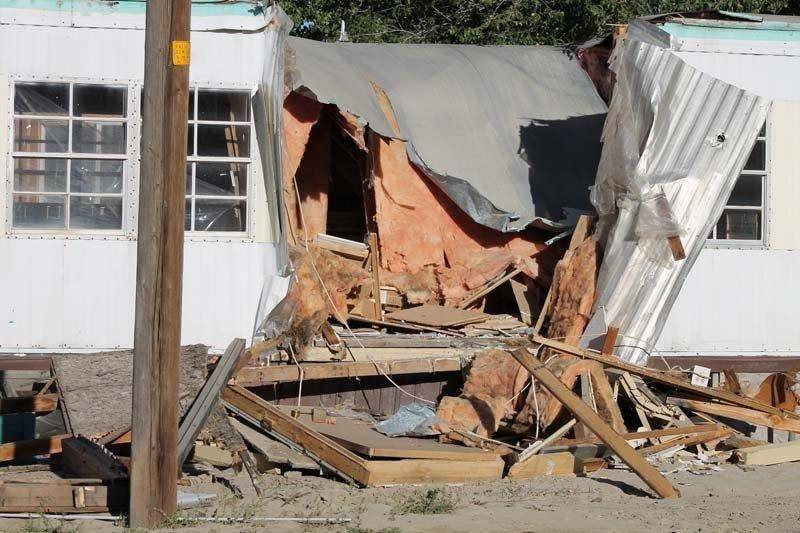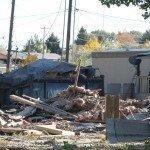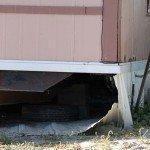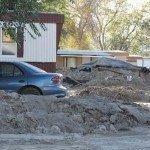Members of the Federal Emergency Management Agency (FEMA) conducted damage assessments in Wellington and Carbonville on Wednesday. Inspectors carefully analyzed and documented property damage caused by the Sept. 27 flooding that made its way through Pillings Trailer Court and parts of Wellington.
According to FEMA spokesperson Jerry DeFelice, the purpose of the agency’s visit was to only survey damage. “Based upon the assessment team’s findings, the state will decide on whether to move forward with the request for federal help or not,” DeFelice explained. “There is no guarantee funds will be available from FEMA. That decision is made at a presidential level, but the findings we submit will be used to determine whether other funds are available through various charitable agencies.”
One primary focus of the assessment is to determine exactly what happened to cause the mass flooding that destroyed homes and property. “The better we understand the situation, we may be able to provide assistance on what can be done to prevent similar events from happening,” DeFelice stated. “Even if we aren’t able to help (financially), we can better understand what’s needed and put people in contact with the correct agencies who can.”
The process to receive federal emergency funds is quite extensive. DeFelice explained that even after the damage assessment team submits their findings, state officials must determine whether additional resources are needed beyond the local level. If the need is present, the governor will then be asked to determine if state funding can be used and if additional money is needed. Then, he will pass along the request to the federal government for assistance.
“It is a very long process,” DeFelice advised. “There is no timeline for a decision to be made. It is, however, important to note that FEMA only helps individuals, not businesses. There are other agencies, including the US Small Business Administration, that can help a business in a disaster situation.”
According to the FEMA spokesperson, local emergency management teams and officials handled the flooding situation well, beginning with the initial first call for help. “This is the second flood in this area within a two month period,” DeFelice indicated. “Each time, local agencies reacted quickly and properly.”
Because of the most recent series of flooding in Carbon County, he recommends that homeowners consider purchasing flood insurance. “Anyone can get it,” he said. “Even if a property is located outside of a flood zone, it is still a good idea to invest in the insurance.”
Approximately 24 homes in Pillings Trailer Court alone suffered severe damage, many of which have been condemned. These residents have been left not only without a home, but also without any personal property. Now, these property owners are faced with the daunting task of demolishing their homes and disposing of the remains. “When I walked through the trailer court, I was surprised by the widespread disaster,” DeFelice admitted. “It’s like a ghost town in that neighborhood with only a few residents tearing down what remains of their homes. Others, it seems, have given up.”
Even if federal funding is not received, cleanup efforts will continue. Based upon FEMA’s damage assessment, DeFelice is hopeful that some form of funding will be available through several charitable organizations from across the country.
- Flooding in Pillings Trailer Court on September 27 left most residents without homes.































